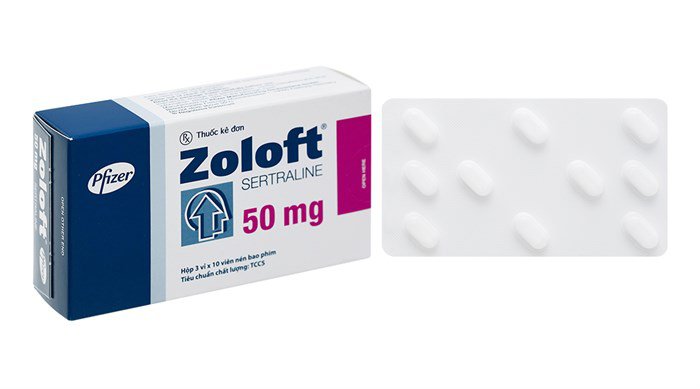Zoloft Uses and Side Effects
Tags: anti depressant, Antidepressant, SSRI, Zoloft

Introduction
Zoloft is a prescription drug used to treat various mental health conditions. It belongs to a class of drugs called selective serotonin reuptake inhibitors (SSRIs), which work by increasing the levels of serotonin in the brain. Serotonin is a neurotransmitter that regulates mood, appetite, and sleep. In this article, we will discuss the uses and side effects of Zoloft.
What is Zoloft?
Zoloft is a brand name for the drug sertraline. It was first approved by the FDA in 1991 for the treatment of major depressive disorder (MDD). Since then, it has been approved for the treatment of several other mental health conditions, including panic disorder, social anxiety disorder, obsessive-compulsive disorder (OCD), and post-traumatic stress disorder (PTSD).
How Does Zoloft Work?
Zoloft works by blocking the reuptake of serotonin in the brain. This means that it increases the amount of serotonin available to bind to serotonin receptors, which can improve mood, reduce anxiety, and alleviate other symptoms of mental health conditions.
Zoloft Uses
Zoloft is primarily used for the treatment of depression, but it can also be prescribed for other mental health conditions. Here are some of the uses of Zoloft:
Major Depressive Disorder (MDD)
Zoloft is FDA-approved for the treatment of MDD, which is a severe form of depression that affects a person’s mood, behavior, and physical well-being.
Panic Disorder
Zoloft can also be used to treat panic disorder, a type of anxiety disorder characterized by recurrent and unexpected panic attacks.
Social Anxiety Disorder (SAD)
SAD is a type of anxiety disorder that causes intense fear and anxiety in social situations. Zoloft can be prescribed to help alleviate the symptoms of SAD.
Obsessive-Compulsive Disorder (OCD)
OCD is a mental health condition characterized by intrusive thoughts and compulsive behaviors. Zoloft can help reduce the frequency and intensity of these symptoms.
Post-Traumatic Stress Disorder (PTSD)
PTSD is a mental health condition that can occur after experiencing or witnessing a traumatic event. Zoloft can be prescribed to help alleviate the symptoms of PTSD.
Zoloft Side Effects
Like all medications, Zoloft can cause side effects. Here are some of the most common side effects of Zoloft:
Nausea
Nausea is a common side effect of Zoloft. It may occur during the first few weeks of treatment, but it usually goes away with time.
Insomnia
Zoloft can cause insomnia, which is the inability to fall asleep or stay asleep. This side effect can be managed by taking Zoloft in the morning or adjusting the dosage.
Diarrhea
Diarrhea is another common side effect of Zoloft. It can be managed by drinking plenty of fluids and eating a healthy diet.
Sexual Dysfunction
Zoloft can cause sexual dysfunction in both men and women. This includes decreased libido, difficulty achieving orgasm, and erectile dysfunction in men.
Weight Changes
Zoloft can cause weight changes, including weight gain or weight loss. These changes may be related to the dosage or the length of time the medication is taken.
Zoloft Precautions
Before taking Zoloft, it is important to discuss your medical history and any medications you are taking with your healthcare provider. Zoloft may interact with other medications, including prescription and over-the-counter drugs, as well as herbal supplements.
Zoloft Dosage
The dosage of Zoloft depends on the individual and the condition being treated. It is important to follow the dosage instructions provided by your healthcare provider and to not exceed the recommended dose.
Zoloft Withdrawal
Stopping Zoloft suddenly can cause withdrawal symptoms, including headache, nausea, and fatigue. It is important to gradually taper off Zoloft under the guidance of a healthcare provider.
Zoloft and Alcohol
Drinking alcohol while taking Zoloft can increase the risk of side effects, including drowsiness and dizziness. It is important to avoid alcohol while taking Zoloft.
Zoloft and Other Drugs
Zoloft may interact with other drugs, including prescription and over-the-counter medications, as well as herbal supplements. It is important to inform your healthcare provider of all medications and supplements you are taking.
Conclusion
Zoloft is a widely used medication for the treatment of various mental health conditions. It works by increasing the levels of serotonin in the brain, which can improve mood, reduce anxiety, and alleviate other symptoms of mental health conditions. Like all medications, Zoloft can cause side effects and may interact with other drugs, so it is important to follow the dosage instructions provided by your healthcare provider and to inform them of any other medications or supplements you are taking.
FAQs
- How long does it take for Zoloft to start working? It can take several weeks for Zoloft to start working. Patients should continue taking the medication as directed by their healthcare provider.
- Can Zoloft cause weight gain? Yes, Zoloft can cause weight gain or weight loss in some individuals.
- Is Zoloft addictive? Zoloft is not addictive, but stopping the medication suddenly can cause withdrawal symptoms.
- Can Zoloft be taken with other medications? Zoloft may interact with other medications, so it is important to inform your healthcare provider of all medications and supplements you are taking.
- Can Zoloft be used for anxiety? Yes, Zoloft can be used to treat several types of anxiety disorders, including panic disorder, social anxiety disorder, and obsessive-compulsive disorder.